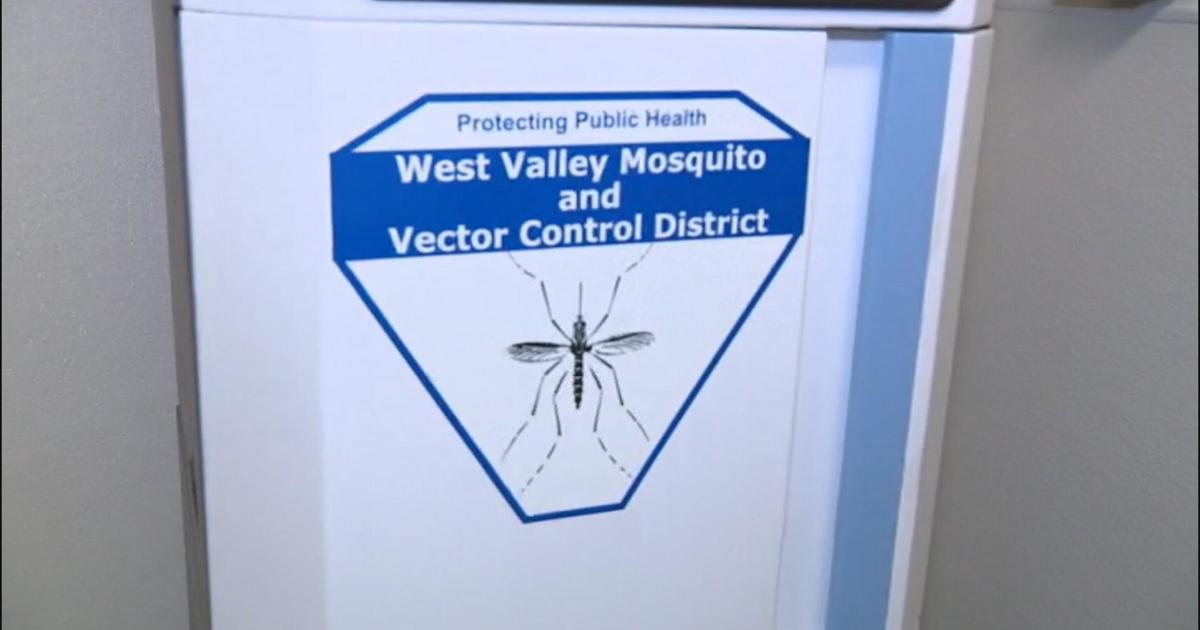To Cut STD Rate, Calif. Considers Condoms In Prison
SACRAMENTO (AP) — California prisoners have unprotected sexual contact, forced or consensual, even if both are illegal, and this reality often leads to the spread of HIV and other diseases in prisons and in communities where felons are paroled.
Setting up a difficult conversation, one state lawmaker says it's time to give inmates a way to practice safe sex behind bars to reduce an infection rate that experts say is much higher than that of the general population.
The proposal from Oakland Democratic Assemblyman Rob Bonta comes despite a law prohibiting any sex between inmates, which creates a conflict that concerns both supporters and opponents of the legislation.
"It's a felony for prisoners to have sex while they're in prison, so I don't think it's good government for the state to encourage inmates to break the law," said Republican Assemblyman Dan Logue of Marysville.
Bonta's proposal would require the California Department of Corrections and Rehabilitation to make condoms available in five prisons by 2015 and expand the program to each of the state's 33 adult prisons no later than 2020.
The bill, AB999, passed the Assembly and is awaiting consideration in the state Senate. If it becomes law, California would be the second state behind Vermont, which has a fraction of the inmate population, to provide condoms to all prisoners. Canada, most of the European Union, Australia, Brazil, Indonesia and South Africa already take that step, according to legislative researchers.
Currently, condoms are contraband in California prisons, though the state has tried a distribution program before but on a temporary and limited basis.
Then-Gov. Arnold Schwarzenegger vetoed a 2007 bill that would have allowed nonprofit and health organizations to provide condoms to state prisoners. But in his veto message, the Republican governor instructed the corrections department to test a condom distribution program in one prison.
About 800 inmates in California State Prison, Solano, located about 30 miles southwest of the state capital, had access to free condoms in vending machines for a year starting in November 2008. Public health officials' report on the pilot program, published in September 2011, found few problems and recommended the program be expanded.
Today, California state prisoners have very limited sanctioned access to condoms. Spouses and domestic partners are allowed to bring as many as 10 on overnight family visits with lower-level offenders who qualify for the incentive program, said corrections department spokeswoman Terry Thornton. But the condoms must be accounted for and are not permitted outside visiting areas.
In Mississippi, the state has provided condoms for at least 20 years, but only to the roughly 10 percent of inmates who are married and qualify for conjugal visits.
The Vermont Department of Corrections has been making condoms available throughout its prison system since 1992. The department's health services director, Dr. Delores Burroughs-Biron, said the state's 2,200 inmates can request one condom at a time from a nurse.
The program has created no security issues, she said, while giving nurses a chance to counsel inmates and advise them that they should seek help if they are being coerced into having sex.
On a lower-level, condoms have been available to jail inmates in San Francisco since 1989 and in Los Angeles County since 2001. Jails in New York City, Philadelphia and Washington, D.C., also distribute them.
"It's really turned out to be not a big deal, and hopefully it's fostering some good practices on the outside and saving some families' lives," said Susan Fahey, spokeswoman for the San Francisco Sheriff's Department.
Critics initially worried that handing out condoms would encourage an increase in voluntary or forced sexual activity, that the condoms could be used to smuggle or hide drugs and other contraband, or that they could be filled with bodily fluids and launched at prison or jail employees, an assault known as "gassing."
None of that has proved to be a problem elsewhere, said Fahey and Kate Monico Klein, director of the San Francisco Department of Public Health's Forensic AIDS Project, which recently was renamed HIV Services.
There have been some unintended and almost comical uses. Now some detainees use the condoms as hair ties or blow them up to use as pillows.
"At first we thought this is sort of a wrong use for a condom, but then we felt this is a way of destigmatizing it," Monico Klein said.
Bonta's bill cleared the Assembly on a 44-26 vote, with one Republican in favor and several Democrats joining Republicans in opposition.
Logue, the Marysville Republican, said a better way to prevent the transmission of disease would be to enforce the law. He also noted that Bonta's bill would require distributing condoms in every prison — including the state's two prisons for women.
"Who would be using those?" Logue wondered. "Would they be guards or people who work in prison to have sex with prisoners?"
Illicit relations between employees and inmates have been an ongoing problem, according to the prison system's inspector general.
"That's of course potentially possible, and we've seen incidents of it happening, although it's illegal," Bonta said in an interview. "I mean, sexual contact between prisoners is technically illegal. But it happens, and I think we need to deal with reality as it stands."
There has been not talk of changing the law to allow inmate sex. But his bill gives the corrections department the flexibility to provide safe-sex options in women's prisons in addition to condoms. It also would require the condoms and dispensing machines to be donated to the state so taxpayers would not be paying for them.
The University of California, San Francisco, projected that the rate of HIV infection among state prison inmates is about 10 times higher than in the population at large. California corrections officials estimate that more than 1,000 prisoners are infected, or about 1 percent of the state's nearly 133,000 inmates.
Steve Whitmore, a spokesman for the Los Angeles County Sheriff's Department, said testing of detainees in the nation's largest jail system shows a noticeable decrease in the transmission of diseases since distribution of condoms and safe-sex counseling began there a dozen years ago. The condoms have caused no security problems, he said.
"It's against the law to have sex in jail, and the sheriff has said that when we know of it, we will take action," Whitmore said. "But he's also said, practically, it's going to happen. We want to prevent people from becoming sick. We want to prevent people from dying."
(© Copyright 2013 The Associated Press. All Rights Reserved. This material may not be published, broadcast, rewritten or redistributed.)



